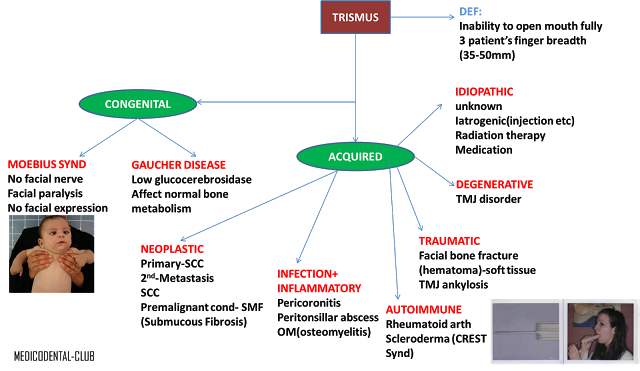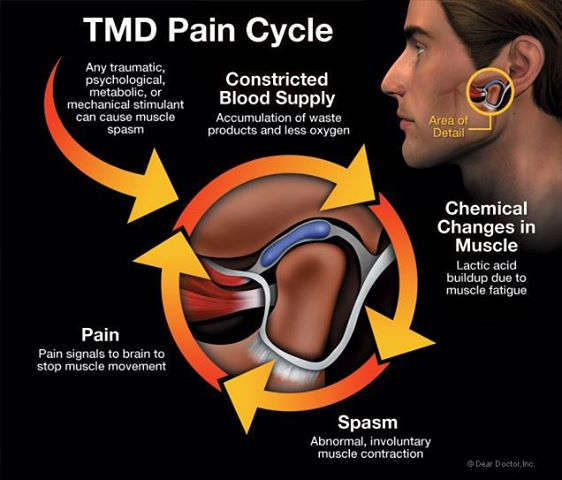The Connection Between Baby Bottles, Trismus, TMJ, and Speech Delays
The connection between dental health and speech is strong and can be seen in anyone from infants and toddlers all the way through adulthood. While the causes of dental and oral health problems might be different, they can all result in delayed or impaired speech and communication skills. “Baby bottle mouth”, trismus, and temporomandibular disorders (TMD) can all impact a person’s ability to clearly communicate.
The Effects of Baby Bottles and Sippy Cups on Your Child’s Speech
Even infants can experience tooth decay, and it is often caused by babies being fed liquids that contain sugars, whether natural or synthetic, through a bottle, especially when the baby is allowed to fall asleep with the bottle. Bacteria love this warm, sugar-filled environment and can cause dental problems commonly referred to as “baby bottle mouth”. If your baby develops early tooth decay it can lead to pain and the loss of those important baby teeth. Without those first teeth, your child can face struggles learning how to speak. The front upper teeth are most often associated with the decay, and those are vitally important for working with the tongue to for articulation. Keep baby bottle tooth decay at bay by:
- Using a damp washcloth to gently wipe your baby’s gums clean after feeding
- Don’t allow your baby to sleep with a bottle
- Avoid filling your baby’s bottle with sweetened beverages
- Consider a bottle with water if your baby has a hard time breaking the baby bottle habit at bedtime
Sippy cups have been the answer to many parents’ prayers – they provide their toddlers with their beverages but protect the carpets from spills, while providing a transition from bottle or breast to a regular cup. However, new concerns have been coming to light about the effects on oral health (malocclusion) for kids who use sippy cups, especially those kids who continue to use these cups beyond age 2 or 3. The sipping spout can interfere over time with the correct eruption of teeth, which in turn interferes with the bite, correct positioning of the tongue, and eventually articulation. The consistent use of sippy cups can also cause problems with delayed muscle development involving the tongue.
- Try limiting sippy cup use to 18-24 months and younger.
- Look for sippy cups that have straws that promote coordination of mouth muscles.
- Don’t allow your child to sleep with a sippy cup.
Oral health issues are not only a concern for young children, but can affect all ages. Two other forms of oral problems that can cause speech disorders in people of all ages include Trismus and TMJ (Temporomanidibular Joint Dysfunction).
The Effects of Trismus on Speech
Trismus used to be primarily associated with tetanus, or lockjaw, but it is more commonly now used to describe a number of conditions that result in the inability to open or close the mouth. Some of the causes are short-term, such as a reaction to a dental procedure, but others like radiation treatments can cause long-term trismus. This condition causes many painful and problematic side effects, including:
- Jaw pain
- Muscle spasms when opening and closing the mouth
- Difficulty chewing and swallowing
- Interference with speech and communication
- Interference with maintaining healthy teeth and gums
If you are diagnosed with trismus there is a good likelihood that you will work with a physical therapist to improve jaw movement and a speech therapist to work with communication issues.
The Effects if TMD on Speech
Similar to trismus, TMD can interfere with your ability to effectively and painlessly move your jaw. This in turn interferes with eating and speaking. One common form of TMD is TMJ, involving the joint of the jaw. Many adults are finding themselves with aching facial pain they sometimes might even think is a severe cavity, when in fact the muscles of the jaw, especially associated with the joint hinge, are stressed and on overload. Even the posture you might use while seated at the computer can affect your jaw muscles. With a future that may contain more and more people sitting in front of the computer for employment, it is important to pay attention to these side effects of spending days hunched over a keyboard. This can be compounded if you grind or clench your teeth at night or during times of stress.
Treatments for TMD and TMJ can range from physical therapy to oral surgery depending upon the severity. Sometimes a referral to a speech therapist can not only help uncover the cause of the TMJ (such as a malposition of the tongue), but can help provide gentle exercises and reminders of proper posture and facial muscle use.





